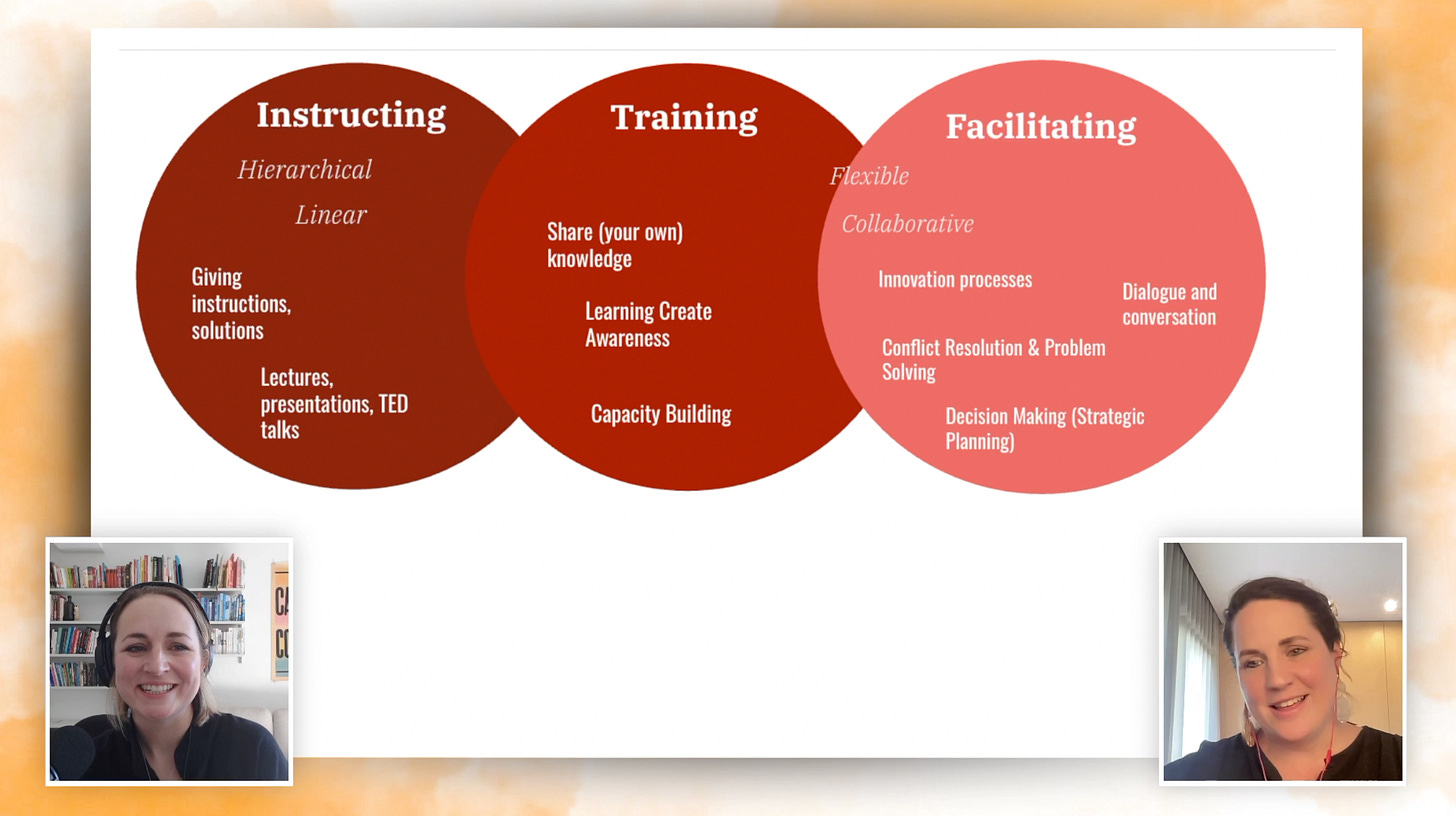E is for... Expertise Wrangling
Wrangling expertise, and egos
Sometimes I describe my work as expertise wrangling.
Why? Because I often work with people who know their field so well that one of the following usually happens:
…there’s so much knowledge in the room that people get lost in the details.
…the “curse of expertise” bites them. Experts forget what it is like not to know something, and communication (and empathy) breaks down with those who don’t know the topic as well. What feels obvious to the expert is anything but obvious to everyone else.
…when some people are labeled as the experts and others as non-experts, it creates power imbalances and limits the group. Complex challenges usually need many kinds of expertise, not always those labelled with PhDs or fancy qualifications.
The group usually gets stuck because their main approaches to problem solving are to think harder, do more research, and try to be smarter… rather than work out why the wisdom already in the room isn’t gelling.
I help them put the puzzle pieces of their expertise together.

Ego wrangling
The other thing I could call my job is ego wrangling. Mostly that means managing my own ego (though of course, other people’s egos show up too).
As a facilitator, it’s tempting to prove your value by showing how much you know. But in my experience that often backfires.
Maybe you say something slightly wrong or confusing because your expertise doesn’t quite fit their context, or maybe you’re so right that the group starts treating you as the authority instead of trusting themselves. The latter is a weird dynamic, and tends not to serve the long term interests of the group as they become reliant on you.
Our role as facilitators isn’t to out-expert the experts, it’s to help their ideas click together across the room. It’s to help turn individual expertise into shared understanding.
That’s why I often do my best work outside my own field.
Not knowing the topic means I have to keep the conversation accessible to everyone, not just the subject-matter experts. And even the experts usually benefit from seeing their ideas explained in a new light.
The Mindset Shift:
For me, expertise wrangling is about making sure deep knowledge is useful without overwhelming, confusing, or excluding people. It’s not about knowing more than the group, it’s about helping their diverse expertise work for them.
From: seeing yourself as the expert
To: to unlocking the expertise of others and helping it stick together to produce something useful.
New Video: Facilitation vs Training
Very relevant to this topic is the latest in the Edges of Facilitation series: Facilitation vs Training (vs Instructing!) with Florentine (Flor) Versteeg.
In this video, Flor shares a model that shows the spectrum between instructing and facilitating. We talk about when each approach makes sense, tradeoffs of efficiency and effectiveness and the different skills required to do each of them.

Hope you enjoy the series.
That’s all for now!
Thanks for reading! I’ll be picking up the pace in September, I’m way behind on this alphabet, and I’ll be traveling in Canada away from my usual client schedule. So expect a few more emails from me then!
Ciao for now,
Lucy
P.S. From October, I will be working with a small cohort of people to learn facilitation on the job! Instead of learning facilitation in the abstract, we work on the design and delivery of a real workshop you’re running, with hands-on guidance, templates and support from me. Want to know more? Let’s talk. Drop me a line on lucy@facilitationmindset.com.



Lucy, this is so timely for me. My next engagement is to facilitate a long-term decision-making process with NGO leaders. I am definitely vulnerable to the pitfalls of leading with my ego. In the past, I've found "proving my expertise" so tempting among groups that, in introductory and surface-level dealings, appear to undercount my credibility in accompanying them. I agree with you that succumbing to that temptation does not serve me or the group in the long run. As you mention, it can hit the wrong note. Also, it can simply broadcast insecurity, whereas demonstrating comfort with silence and simple, probing questions demonstrates confidence.